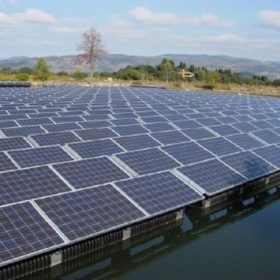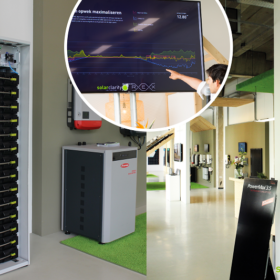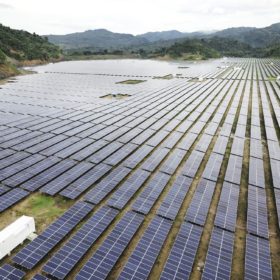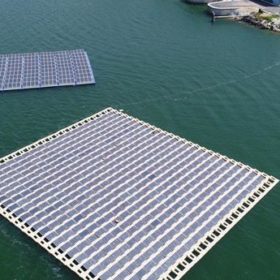BHEL tenders BOS for NTPC’s 100 MW (AC) floating solar plant
Bids are invited for supply, installation and commissioning of balance-of-system (BOS) items for NTPC’s 100 MW (AC) grid-connected floating solar plant in Telangana. Bidding closes on April 27.
A non-flammable lithium metal battery
Researchers from Deakin University in Australia claim their battery chemistry is based on a new class of electrolyte material which carries no risk of uncontrolled thermal events and represents a viable alternative to rechargeable lithium-ion batteries.
Vikram Solar bags 300 MW solar project from NTPC
The Rs 1,750-crore project—under the second phase of Central Public Sector Undertaking scheme—is to be developed using domestically manufactured solar cells and modules.
Covid-19: Challenging times underscore the importance of energy planning and data management
Given the close links between energy and economy, an impact analysis is needed to evaluate the sector and initiate suitable measures against unusual circumstances. Government policy thinktank NITI Aayog is working on a roadmap to improve energy data management system for India. The centralized energy data unit will host all demand and consumption data related to all forms of energy, which can be used by researchers, policymakers and business strategy formulators alike.
SECI invites global bids for 2.5 GW solar projects in Karnataka
The interstate transmission system (ISTS) connected projects—to be developed on build-own-operate basis in the Koppal Solar Park—shall be awarded through international competitive bidding followed by reverse auction. Bids can be submitted till May 29.
European investor ThomasLloyd, SolarArise launch 75 MWp solar project in Uttar Pradesh
The project—requiring investment of 34.9 million euros—will be built by EPC contractor Jakson with modules supplied from JA Solar.
Tata Power Solar bags 300 MW CPSU II project from NTPC
The grid-connected solar project—scheduled for commissioning in September 2021—is valued at Rs 1730.16 crore and will be developed using Tata Power’s own cells and modules.
How much money can you make with PV-assisted EV charging stations?
A French-Turkish research team has created an economic model to optimize scheduling for solar-powered EV charging units. The proposed model suggests that such projects might be more profitable today than at the end of the decade, depending on a wide range of variables.
SCCL tenders 15 MW (AC) grid-interactive floating solar
May 4 is the deadline to submit bids for the solar capacity which shall come up at the state-owned coal miner’s Singareni Thermal Power Plant storage reservoir (10 MW) and Dorli open-cast project void (5 MW) in Telangana.
Preventing PID at 1500 volts
Scientists in Germany have developed a “heavy duty” test to provide insight into the long term effects of potential induced degradation in PV modules. The tests go well beyond those established by IEC standards and seek to guide manufacturers and investors on the best choice of materials – encapsulants in particular – when it comes to long term PID resistance.















